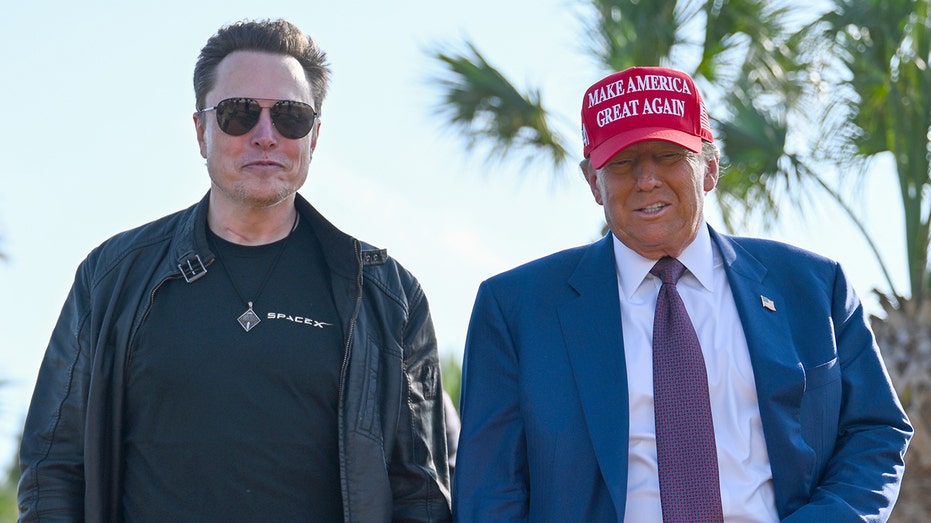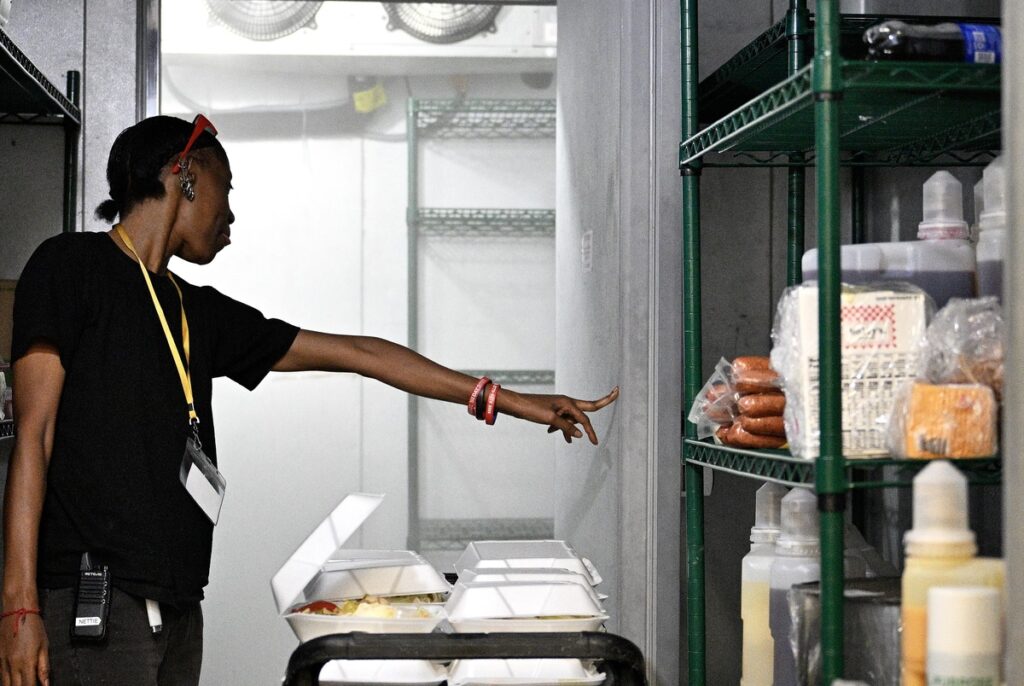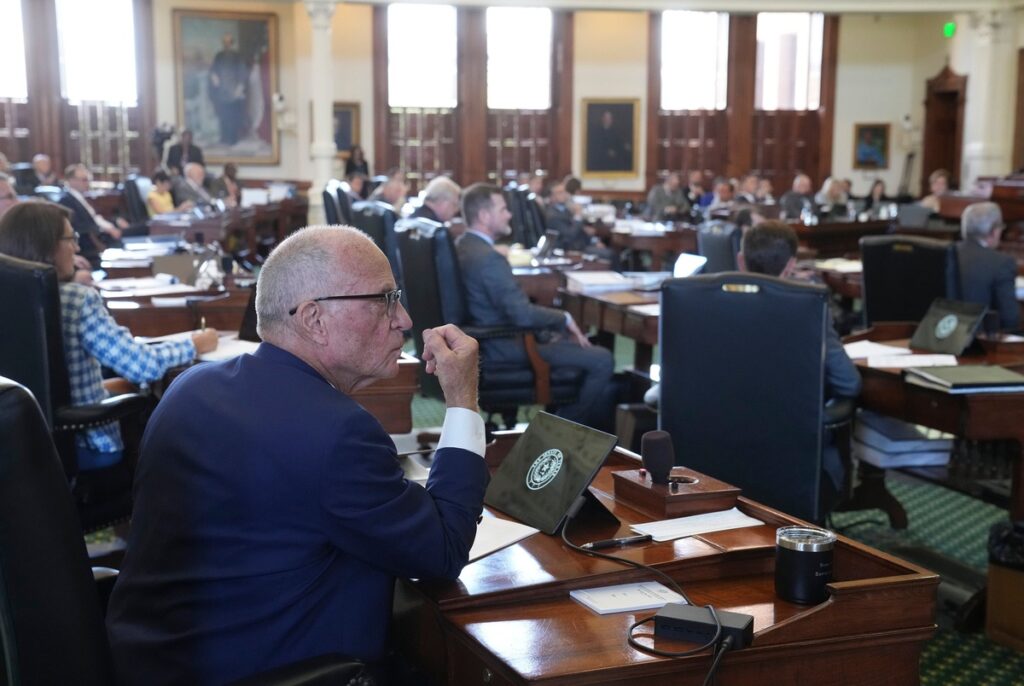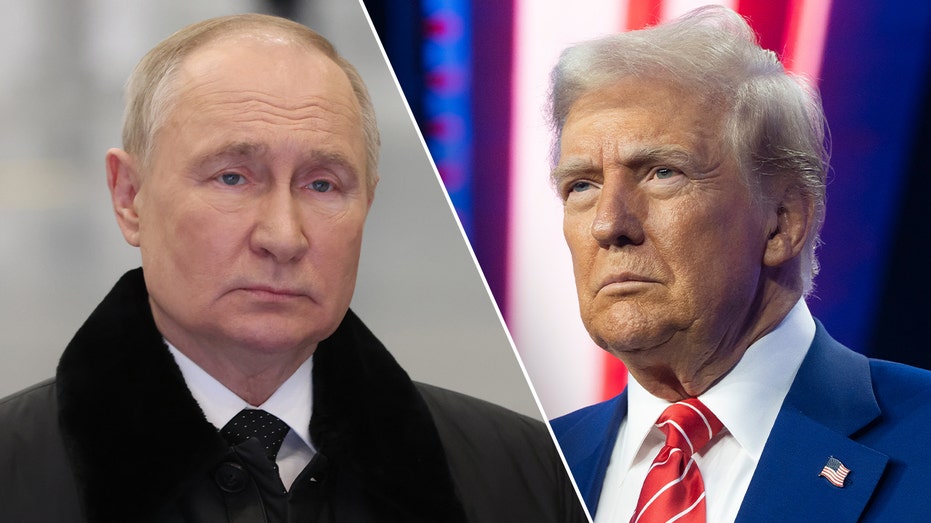As Germany braces for election, backing the far-right AfD no longer a taboo

Berlin, Germany – For Susanne, a nursery teacher in Berlin, there is no contest. She has decided to cast her vote for the hard-right populist party, the Alternative for Deutschland (AfD), or Alternative for Germany, on February 23 in the country’s snap federal elections. The election follows the collapse of Chancellor Olaf Scholz’s three-party government in November. The ruling coalition, known as the traffic light alliance, consisted of Scholz’s centre-left Social Democratic Party (SPD), the Greens, and the pro-business Free Democratic Party (FDP). Falling out of favour with the Christian Democratic Union (CDU) for its pro-vaccine position since the COVID-19 pandemic, Susanne, in her 50s who requested Al Jazeera withhold her surname, said the AfD is the “only party doing something different on the issues that determine our everyday lives”. Eva Mueller, a 50-year-old mother of two who works as a careers coach in the German capital, also plans to back the AfD. “I live in a part of Berlin where around 80 percent of the population has a migration background, and I have no problem with it,” she said. Advertisement “But the migration policy is not effective and the way the AfD is presented, as completely hating foreigners and wanting to expel them all, is just not the case. What is the case is that they are worried about integration not being possible if there is an excess.” Several AfD party chapters have been officially labelled as “right-wing extremists” by intelligence authorities since its inception in 2013. But last week in Germany’s parliament, the Bundestag, a taboo was broken. CDU leader Friedrich Merz – tipped to become Germany’s new chancellor – proposed a motion on tougher migration rules, known as the five-point plan, that passed with the backing of the AfD. While the draft law was ultimately rejected by the Bundestag on January 31, Merz’s decision to break ranks and work with the AfD cut through a longstanding firewall created by the country’s main political parties that blocked cooperation with the far right. Amid widespread public and political condemnation, the move drew thousands of protesters to the CDU headquarters in Berlin. Former Chancellor Angela Merkel and Scholz accused Merz of committing an “unforgivable mistake”. Meanwhile, Germany is still reeling from two deadly attacks within a matter of weeks of each other – most recently on January 22 in Bavaria when seven people were killed by men who had sought asylum in the country. Voter dissatisfaction with mainstream political parties for the war in Ukraine and the rising cost of living, analysts say, is also high. Advertisement ‘The party could attract more voters’ Recent polls indicate the AfD is likely to secure second place in the election, with 21 percent of the vote – 10 points behind the CDU and its sister party, the Christian Social Union (CSU). Analysts say the AfD – once considered a political outlier – is set for the biggest electoral gains in its 12-year history. Oliviero Angeli, a political scientist at the Technical University in Dresden, tells Al Jazeera that the recent tensions in parliament will likely boost the far right in terms of the party’s legitimacy and visibility. “What is remarkable at the moment is the firewall that was built over the last years against the AfD is now starting to break down. It was already breaking down on communal and regional levels, but last week shows that it’s now breaking down on a national level,” Angeli said. “Until recently, voting for the AfD could be considered a wasted vote because you could expect other parties not to cooperate with them. But now, people’s views may change and the party could attract more voters.” Further adding to the AfD’s perceived strength, tech billionaire Elon Musk – recently appointed by United States President Donald Trump to lead his administration’s Department of Government Efficiency – has waded heavily into the election with a series of interventions. He hosted a livestreamed interview on the X platform he owns with AfD chief Alice Wiedel. On January 25, he appeared via videolink at a party meeting; two days before Holocaust Remembrance Day, he told the delegates to move past Nazi-era guilt. Advertisement “It’s good to be proud of German culture, German values, and not to lose that in some sort of multiculturalism that dilutes everything,” he told a cheering crowd. But Jakub Guhl, a senior manager within the Digital Research Unit at the Institute for Strategic Dialogue in London, told Al Jazeera that he is not convinced of Musk’s influence. He acknowledged though, a “completely unprecedented dynamic” as a leading social media platform with powers to shape public discourse is “clearly throwing its weight behind one political party, and one that’s particularly controversial”. ‘Remigration’ Earlier in its election campaign, the AfD touted a “remigration” policy – a nationalist term used to describe sending people to their home nations. Other key parts of its manifesto, announced last month to a crowd of more than 600 delegates in the AfD stronghold state of Saxony, included the reintroduction of the Deutsche Mark as Germany’s national currency, a rejection of green transition policies, and education reforms linked to gender studies programmes. Analysts said while the party is unlikely to win, its position on heated subjects such as migration will politically shake Europe’s largest economy – possibly leading to turbulence across the continent. “They have an increasing influence on public opinion, and as we have seen last week, on politics, with other political parties moving more to the right,” says Angeli. “You won’t necessarily be considered an outlier any more, certainly in parts of the east, if you are between 18 to 24 years old and vote AfD,” added Guhl. “It’s also doing quite well among working-class voters who are concerned about the economy, and people who think we’re spending too much money on people coming in externally, and support for a war in Ukraine that they are likely to have been against in the first place.” Advertisement Back in Berlin, AfD supporter
Spain’s Hermoso says no consent given for World Cup kiss at Rubiales trial

Jenni Hermoso says at the trial of ex-Spanish football chief Luis Rubiales that the kiss ‘stained’ her 2023 World Cup victory. Spain star Jenni Hermoso told the trial of disgraced ex-football chief Luis Rubiales that the forced kiss he gave her in 2023 “shouldn’t happen in any social or work setting”. Prosecutors are seeking two and a half years in prison for Rubiales for sexual assault and coercion after his kiss on Hermoso following the 2023 Women’s World Cup final sparked global outrage. Rubiales, 47, denies the charges. He has called the kiss an innocuous “peck between friends celebrating” and denied any coercion. “I felt it was totally out of place and I then realised my boss was kissing me, and this shouldn’t happen in any social or work setting,” Hermoso told the court on the opening day of the trial on Monday. “A kiss on the lips is only given when I decide so,” she added. Luis Rubiales arrives at the court of San Fernando de Henares on February 3, 2025 [Thomas Coex/AFP] The scandal that rocked Spanish football and wrecked the career of Rubiales came moments after Hermoso and her teammates had clinched World Cup glory, beating England in the final in Sydney. Advertisement As Hermoso joined her teammates in collecting their winners’ medals, Rubiales clasped her head and kissed her on the lips before letting her go with two slaps on the back. The act unleashed a public outcry at what critics deemed an abuse of power and made Hermoso an icon of the fight against macho culture and sexism in sport. A recent reform of the Spanish criminal code classifies a nonconsensual kiss as sexual assault. “As a woman, I felt disrespected. It was a moment that stained one of the happiest days of my life,” Hermoso said at the trial. “For me, it is very important to say that at no point did I seek that act, let alone expect it.” The trial at the National Court in San Fernando de Henares near Madrid is scheduled to run until February 19. Rubiales (R) kisses Hermoso during the medal ceremony of the FIFA Women’s World Cup Australia 2023 final match between Spain and England on August 20, 2023, in Sydney [Noemi Llamas/Eurasia Sport Images via Getty Images] Adblock test (Why?)
Both Canadians and Americans to feel “pinch” of tariffs
[unable to retrieve full-text content] “Trade barriers don’t create winners, protectionism hurts both sides, they lead to shared losses.”
Meet man, son of former MLA who turned chain snatcher due to…

On the evening of January 25, Pradyumn Singh snatched a chain from a woman’s neck. The victim filed a complaint with the police. The police registered the case and arrested the accused based on the CCTV footage.
Texas National Guard deputized to make immigration arrests

President Donald Trump’s administration has reached a deal to grant the Texas National Guard new authority to make immigration arrests this weekend. Texas Gov. Greg Abbott referenced the deal on social media, saying it would “boost manpower for border security.” Under the agreement, Texas National Guard troops would be able to arrest illegal immigrants so long as there is a U.S. immigration officer or Border Patrol agent present. U.S. Customs and Border Protection did not immediately respond to a request for comment from Fox News Digital. Abbott said the deal was “effective immediately” as of Sunday night. The deal is only the latest front in Trump’s nationwide blitz against illegal immigration. Immigration and Customs Enforcement (ICE) and other border security groups have leaned into their deportation efforts since Trump gained office. TRUMP FOE LETITIA JAMES SLAMMED FOR POST-NYC ICE RAID COMMENTS: ‘GET ON THE SAME PAGE’ Trump’s 2024 campaign promised to curb illegal immigration that flourished under the Biden administration. The 47th President promised to deport migrants, including those who had long rap sheets or ties to gangs or terrorist organizations. On the first day of his second term, Trump issued ten executive orders aimed at overhauling U.S. immigration law and policy. Less than a week back in the Oval Office, Trump touted that he is keeping his promises. “Within hours of taking the oath of office, I declared a national emergency at our southern border. I sent active duty troops on the border to help repel the invasion. Tom Homan is leading the charge. You know that. We like Tom Homan. Doing a great job,” Trump said at a recent rally. CLICK HERE FOR MORE IMMIGRATION COVERAGE “We immediately halted all illegal entry and began sending every border trespasser and violator back to the places from which they came. I signed an order that will designate the cartels as foreign terrorist organizations. It’s a big deal, it’s a big deal. Biden didn’t want to do that,” he added. “Biden didn’t know he was alive. He didn’t want to do it.” Federal officials deported some 7,300 illegal immigrants in the opening week of Trump’s administration alone. Fox News’ Sarah Rumpf-Whitten contributed to this report
Trump ‘agreed’ on shutting down USAID, Elon Musk says

Elon Musk, who is spearheading the Department of Government Efficiency (DOGE) effort, said during an X spaces conversation that President Donald Trump agreed that the U.S. Agency for International Development (USAID) should be shut down. Musk indicated that unlike an apple contaminated by a worm, the agency is “a bowl of worms.” “There is no apple,” he said. “It’s beyond repair.” MUSK’S DOGE TAKES AIM AT ‘VIPER’S NEST’ FEDERAL AGENCY WITH GLOBAL FOOTPRINT Musk noted that the more he’s gotten to know Trump, the more he likes the president. “Frankly, I love the guy. He’s great,” the business tycoon said of the president.
After Hurricane Beryl, Texas lawmakers push for generators at senior living facilities

After failed attempts in 2021 and 2023, southeast Texas lawmakers have filed bills to require generators in nursing homes and assisted living centers.
Some Texas lawmakers want to ban countywide voting on Election Day. Local officials are pushing back.

Election administrators say letting people cast a ballot at any polling site is more convenient for voters and cheaper for local governments.
India’s most profitable expressway, built 22 years ago, earns Rs 1630000000 annually, toll rate is just Rs…

This expressway is approximately 94.5 kilometers long but has generated the highest revenue for the government.
Trump’s ‘denuclearization’ suggestion with Russia and China: How would it work?

Amid a wave of early shakeups in the new administration, President Donald Trump has twice this month proposed “denuclearization” talks with U.S. adversaries. “Tremendous amounts of money are being spent on nuclear, and the destructive capacity is something we don’t even want to talk about today, because you don’t want to hear it,” Trump mused in remarks to the World Economic Forum at Davos, Switzerland, last week. “I want to see if we can denuclearize, and I think it’s very possible,” suggesting talks on the issue between the U.S., Russia and China. Such an idea could represent a major thawing in U.S. relations with two global adversaries – but beg the question of whether the U.S. could trust the nations to hold up their end of the deal. President Vladimir Putin announced Russia would suspend its participation in the New START treaty in 2023 over U.S. support for Ukraine. Russia had frequently been caught violating the terms of the deal. But China has never engaged in negotiations with the U.S. over arms reduction. IRAN’S COVERT NUCLEAR AGENCY FOUND OPERATING OUT OF SPACE LAUNCH SITES Trump reiterated to Fox News’ Sean Hannity on Wednesday that he’d been close to a “denuclearization” deal with Russia during his first term. “I was dealing with Putin about the denuclearization of Russia and the United States. And then we were going to bring China along on that one. I was very close to having a deal. I would have made a deal with Putin on that denuclearization. It’s very dangerous and very expensive, and that would have been great, but we had a bad election that interrupted us.” The Defense Department now expects that China will have more than 1,000 nuclear warheads, a near-doubling of the estimated 600 they possess right now. In a speech on Jan. 17, Russian Foreign Minister Sergey Lavrov said that “amid a ‘hybrid war’ waged by Washington against Russia, we aren’t seeing any basis, not only for any additional joint measures in the sphere of arms control and reduction of strategic risks, but for any discussion of strategic stability issues with the United States.” But Putin, in an address on Monday, struck a more diplomatic tone: “We see the statements by the newly elected president… about the desire to restore direct contacts with Russia. We also hear his statement about the need to do everything possible to prevent World War III. We, of course, welcome this attitude.” Chinese Foreign Ministry spokesperson Guo Jiakun said of Trump’s comments at a news conference on Wednesday: “China’s development of nuclear weapons is a historic choice forced to be made. As a responsible major country, China is committed to the path of peaceful development and friendly cooperation with all countries in the world.” Experts argue Russia is using its leverage over nuclear arms control as a means for the U.S. agreeing to favorable terms to end the war with Ukraine. “Russians are ‘me first’ painstaking negotiators, and what they’re doing in this case, is they’re clearly laying a bit of a trap,” said John Erath of the Center for Arms Control and Non-proliferation. “It makes sense dangling arms control, which they perceive as something that we want, in front of us and saying, ‘Oh, by the way, we’ll talk about reducing nuclear weapons,’ as an incentive to get us to throw the Ukrainians under the bus.” But whether Trump was revealing a policy priority or speaking on a whim with the Davos comments is anyone’s guess. The president took heat during his first term for meeting with North Korean dictator Kim Jong Un to discuss nuclear reduction. That effort fell apart, and Trump resorted to threatening to rain “fire and fury” on North Korea. “I think he’s very sensitive to the dangers of nuclear war, and realizes that in many ways, we’re closer to that today than we have been in many, many decades,” said George Beebe, a director at the Quincy Institute for Responsible Statecraft. One thing most experts agree on is that the U.S. nuclear program is expensive and outdated. With some 3,700 warheads in its arsenal, the U.S. is expected to spend $756 billion to store and maintain its nuclear weapons between 2023 and 2032. “Regardless of reductions, however, the administration and Congress must continue modernizing and ensuring the reliability of the U.S. nuclear arsenal while eliminating excessive spending where possible,” said Andrea Stricker, deputy director at the Foundation for Defense of Democracy’s nonproliferation program. Arms experts admit that Russia has cheated on arms treaties, but U.S. intelligence capabilities have grown to ensure compliance. “We’ve done it throughout the Cold War to varying degrees, and I think we’ve gotten better and more capable in our intelligence community of monitoring compliance with these sorts of things. So that is certainly a feasible approach to take,” said Beebe. MIKE JOHNSON REPLACES POWERFUL INTELLIGENCE COMMITTEE CHAIRMAN AFTER RUSSIAN NUCLEAR THREAT WARNING But China and Russia aren’t the only U.S. adversaries with nuclear weapons. North Korea is estimated to have an arsenal of 50 nuclear warheads, Iran is on the precipice of enriching uranium to potent enough levels for a bomb. “Before engaging in arms control talks, Washington needs a strategy for how it will simultaneously deter two peer nuclear competitors, Russia and China, which could combine forces with states like North Korea and Iran to attack or coerce the United States,” said Stricker. In the four decades between the U.S. atomic bombings of Japan in 1945 and the first arms control treaty between the U.S. and Russia, the world was on edge as the two superpowers raced to claim the world’s largest arsenal. In 1987, Washington and Moscow signed the Intermediate-Range Nuclear Forces Treaty (INF), which led to the dismantling of thousands of bombs. But over the years, the U.S. and Russia lost their monopoly on civilization-ending weapons: now nine countries are nuclear-armed, rendering bilateral treaties less and less effective.

